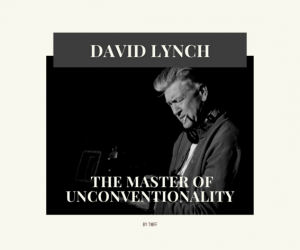The moment when, quite a while ago, one caveman split a pile of small rocks separately from a pile of big boulders, mankind discovered one of its main defining characteristics: the ability to categorize things. By a process of observation, related to past experiences, humans, unlike most other animals, are able to consciously recognise similarities and differences between things, and sort them on the basis of these concepts.
Cavemen, unfortunately, had no video-based entertainment available to them, but in case they had, even they could tell that The Exorcist is quite a different proposition, stylistically and thematically speaking, than Ace Ventura 2 – When Nature Calls, for instance. What I’m trying to get to is that films are quite varied on the basis on what they show, and how they do it – therefore, they are split into a multitude of genres. Some can be easily encompassed into a category, while for others, the decision might be more nuanced and difficult. Anyways, let’s have a look at a few things that you, as a filmmaker, should consider when starting off a project and find yourself in the phase of choosing its genre.
Story idea leads to choice
Things should be pretty clear cut here – the content of your project should determine its genre. If it involves spaceships and time travel, it’s gonna be a sci-fi, loosely speaking. If it’s about the life of Pericles of Athens, it’s probably going to be either a historical movie or a biographical one. Genre is going to affect who your characters are, how they speak, what they talk about, as well as pacing considerations and content tropes.
However, choices aren’t always that simple when starting a project from scratch, as opposed to being a member of the audience. You might start your screenplay with a specific story in mind, but without being quite sure how to tell it. Even if it’s a great premise and encompasses fantastic ideas, if you develop it alongside the wrong genre framework, it might end up missing its true potential. So think hard on this topic, since it’s perhaps the most important make-or-break decision that you’ll have to take.
Be knowledgeable about your chosen genre
Once you’ve chosen a particular genre, become a mini-expert in this niche. Watch as many such films as you can, draw maps and charts to identify the most common story arcs utilised in this case, and find the norm. Even if you want to break away from the norm a little bit (which I would definitely advise to do), you have to know what the norm is in the first place. Therefore, research is key – don’t go about writing a comedy script if you haven’t seen a funny film since the late nineties. Explore, and thus you’ll understand much more clearly what you want to do, or at least what you don’t want to do, which is equally important.
Know your target audience
Maybe you don’t start off with a definite idea, but you kind of already figured out the direction you’d like into go in. Then, you likely also discovered your target audience – who would be interested in this film, in case you’d end up writing and making it. If you know who it’s for, you’ll know how to transmit it as such, what to emphasize, what to include and what not to include. Play around with these pieces of information, find a wide genre category, incrementally narrow it down and you’ll soon have your answer.
Don’t be afraid to combine genres, but be smart about it
You can very rarely find a film showcasing a pure, 100% genre category fit. It’s almost always going to be a mix. The key is achieving a good genre balance, and not making the whole thing feel like separate parts glued together – like when you have to write a group paper at university, and it ends up being a mishmash of different writing styles and linguistic subtleties. Also, make sure that the primary genre is easily identifiable, and the secondary one or ones tag along coherently. A good example is The Martian – you need not hear more than its title to know it’s a sci-fi, but you’d probably not guess that it’s also a hilarious and good-natured comedy – the Golden Globes even nominated it to their ‘Best Comedy or Musical’ award at the 2016 edition of the awards.
Of course, exceptions to this rule do exist. Cloud Atlas is such a complex film, that each timeline or character arc offers a completely different experience, genre-wise. However, to do this and achieve a good result is very rare indeed. Most of the times you get final products suffering from an identity crisis – stuff just happens.
Know that genre is going to determine profits
For me, this is by far the most annoying consideration. If you produce a cheap, unoriginal and thoroughly stupid horror film, and release it in October, you’re probably going to make a s**tload of money. Tens of millions at least. However, if you make a beautiful and thoughtful piece of art (Paolo Sorrentino’s Youth comes to mind), it’s rather likely that box office earnings will be modest at best. Yes, indeed, the nature of the market it indeed a harsh and cruel reality – but don’t let it dishearten you. Always seek to create something because you love the idea and invest your soul into it, and not because you think it might bring you a sack of money eventually.
















